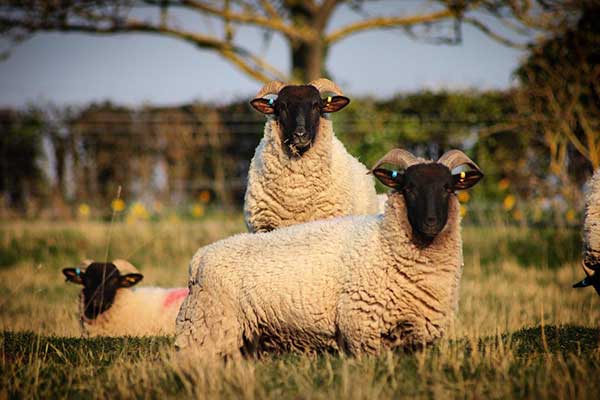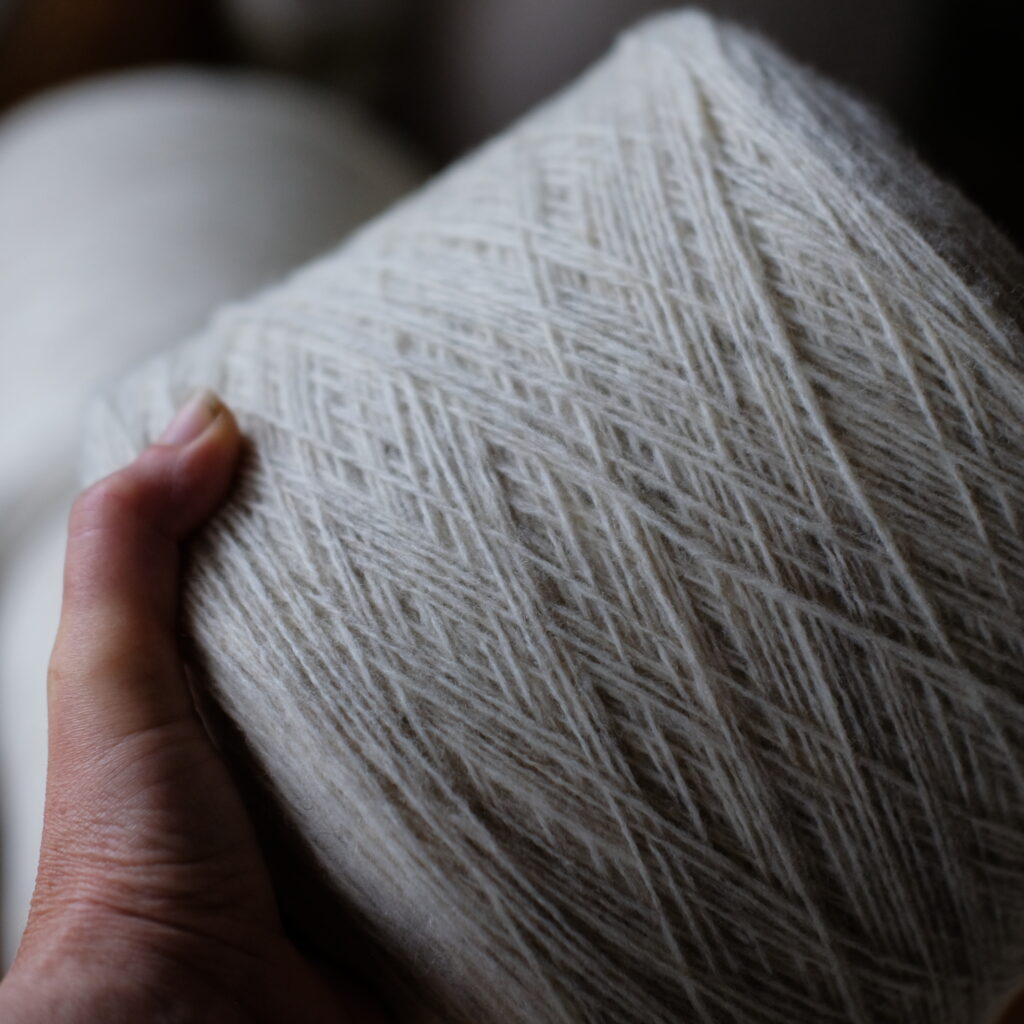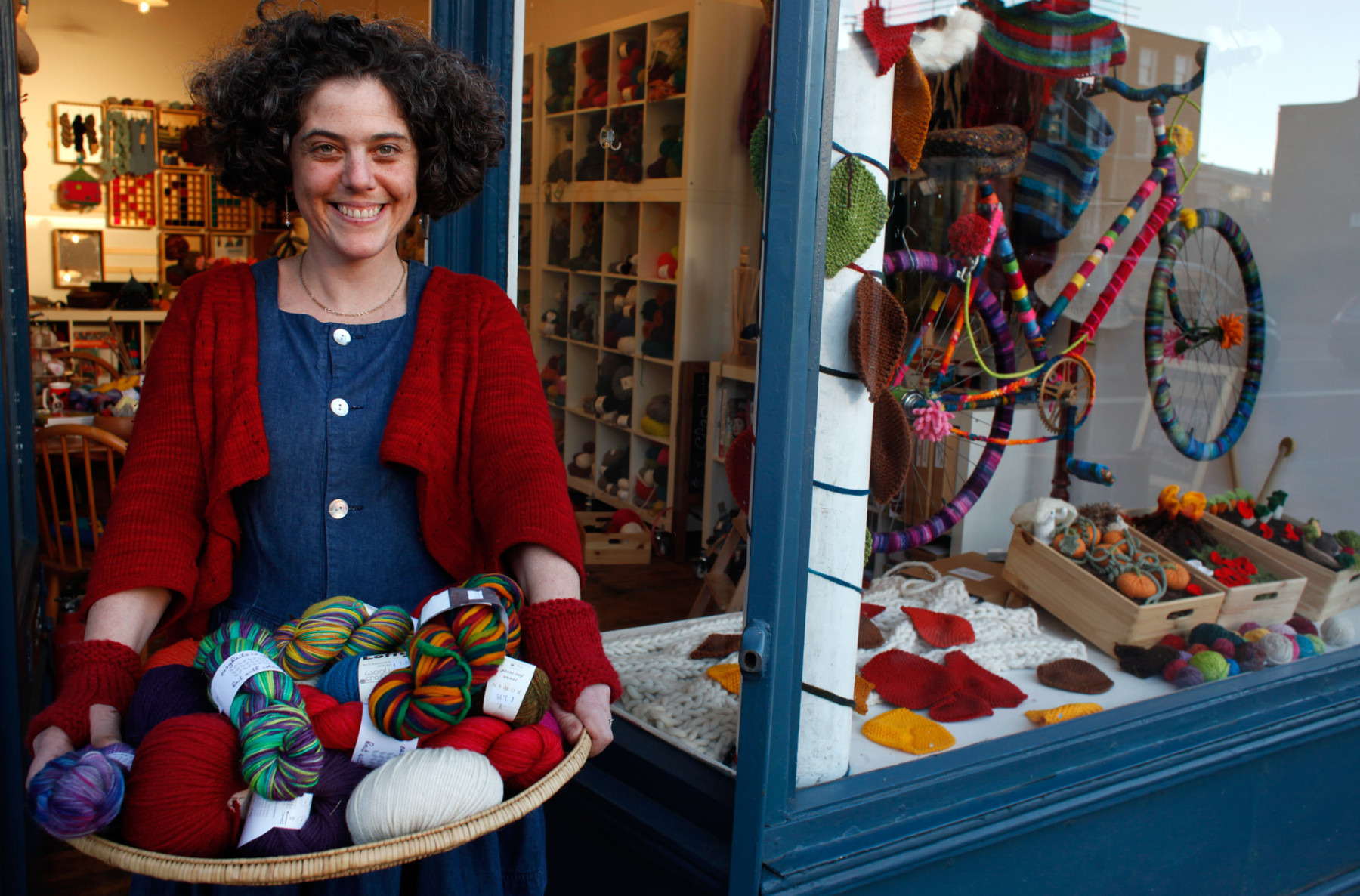“They are the most beautiful sheep you’ve ever seen. Both the ewes and the rams have amazing horns – a sort of swept-back affair.”
Jenn Monohan is talking to me from her home in Elsing, a small village in Norfolk where she runs her yarn business, Fibreworkshop. She’s telling me about the Norfolk Horn sheep whose fleece she uses for all the yarn she dyes. Whatever else there is to know about her practice, one thing is clear immediately – Jenn’s love for the Norfolk Horn, a rare sheep breed native to Norfolk, runs through all she does. As she talks about discovering the sheep and the wool from their fleece, I feel like she’s telling me about finding her soul-wool.

She collects fleece from 3 core flocks belonging to local small farmers around the county. This issue of scale is really important. The size of their operations makes it impractical and uneconomical for these famers to sell their fleeces to the British Wool Board, which effectively means the fleeces become a compostble waste product – or they would if Jenn didn’t collect them for wool. At the same time, their smallness enables Jenn to have a personal relationship with the farmers.

“It’s not the world’s softest fleece,” Jenn explains. “It’s quite an old-fashioned sort of fleece.” Anticipating my next question, she adds “It doesn’t respond well to worsted spinning. When you’re dealing with something as particular as a rare-breed, there are some things it won’t do.“
A bit of technical background may be helpful here: Worsted spinning involves combing the fibres of the fleece until their natural crimp (springy zigzaggy-ness) is removed and the hairs are lined up in parallel. This makes a denser smoother and more lustrous yarn. Woollen spinning on the other hand, works with crimpy fibre that has the hairs in more of a jumble, trapping more air into the yarn and creating a thread with a woollier fuzzier surface. Historically worsted spinning was regarded as superior – as it tended to also be softer than it’s less processed, older woollen sibling. But these days our taste for rustic wool and interest in provenance has given woollen spun yarns a bit of a boost. It makes perfect sense that Jenn chose to get her beloved Norfolk Horn fleece spun in the old way by the Halifax Spinning Mill in Bridlington, which specialises in small batch woollen spun yarns.

Whilst woollen-spun Norfolk Horn forms the material foundation of her production, it is sustainability which drives her ethical approach.
“This isn’t just about the environment,” says Jenn. “It’s also about financial sustainability. I see my role as providing a market where I can, so that we can support the farmers that keep our rare breeds going. I want to give the fibre meaning and value.“
And all I want to say is ‘Oh Yes!’ as I momentarily picture the yarn where I first saw it, hanging on a small peg board in the delightful Norfolk Yarns knitting shop in Pottergate in Norwich. It was surrounded by smartly branded balls of Rowan yarns, but it totally stood apart. It called out, for all the right reasons – characterful, plump and skillfully plant-dyed. It was obvious that this wool had a fine story to tell!
Jenn explains about how her plant dyeing practice fits into the overall process: “You don’t get as much control, partly because the Norfolk Horn has a fleck to it, so it comes through the dye. The Norfolk is still itself there under the dye. But also I know that repeating colours is impossible with plant dyes but I’ve embraced that now. I’ve learned to be humble to the way the plants dye the wool. You can have the same yarn batch, dye stuff, pH levels, water temperature and still you’ll get a variance in the shade, but I like that.”
And now I’m struck by how everything links together: fibre, spinning, dyeing – every stage in the process retains the integrity of the fleece that she started with, and the sheep that she loves.
“It’s not for people looking for soft, drapey merino,” explains Jenn, and then adds “You could say it’s quite niche.”
I smile to myself. Niche works fine for me, and I’m tempted to say it will be right at home with the other yarns here.
I’m delighted to say that Jenn’s Fibreworkshop, plant dyed Norfolk Horn yarn kits are now available in the shop and online


